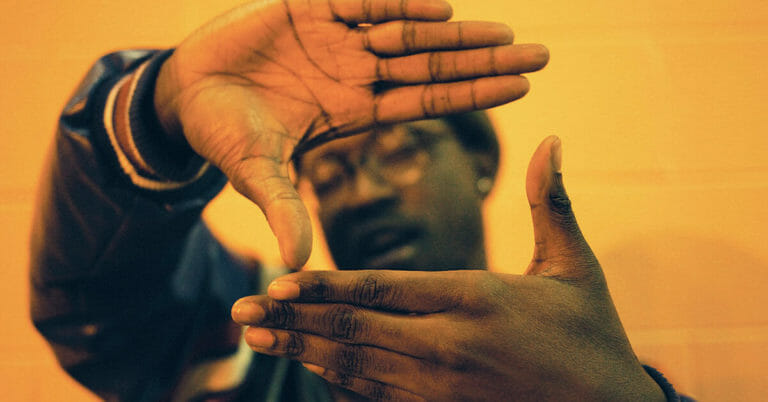By Ben Larned · January 5, 2018

Last year’s Oscars appeared to define the schism of American culture: on one hand, we had the nostalgic and saccharine La La Land; on the other, the subtly devastating Moonlight. With the presidential upset fresh in everyone’s minds, we were able to witness the underdog, the toughest and most nebulous between the two, take home the award. While the nearly-mistaken Best Picture announcement proved that the industry still isn’t ready to accept this as a natural occurrence, the ripples seem to reflect in this year’s awards predictions.
Guillermo del Toro was not shy about his intentions when he released The Shape of Water — this was a film for a traumatized global populace, terrified that oppression and cruelty had, in fact, won the day. It’s no shock that del Toro’s film is masterfully imaginative and earnest; he gives such gorgeous, genuine life to the most alien of his creations, and that generosity fuels this film with a delirious amount of beauty. The human characters are just as carefully drawn – aging Richard Jenkins is upfront and active about his sexuality, while Michael Shannon even expresses pitiful vulnerability in his villain. The film is unflinching but warm, violent but tender, a tonic for despair in an era seemingly ruled by injustice.
It’s rare to see this kind of widespread but honest emotional attention in any film, let alone one about a humanoid fish monster; but it’s the kind of inclusive passion that we’ve seen in so much of 2017’s cinema. While del Toro’s vision is unmatched, many of this year’s Oscar contenders share his intentions.
Like The Shape of Water, Sundance hit Call Me By Your Name is an objectively beautiful film — it’s impeccably shot, written with nuance and complexity, a masterclass in understated performance — but it also exposes so many experiences that queer youths encounter, typically without another person to guide them. Director Luca Guadagnino, who previously crafted some of the sexiest love scenes in recent cinema with I Am Love (2009), brings his incredible talent for intimacy to this narrative of a young man who falls in love with a transient student. The film is a gift, especially to queer men – it provides a gorgeous tapestry across which we can recall our own coming-out, the love affairs that shaped us, the regrets we have about time wasted in fear. Guadagnino, like del Toro, gives so much depth to his characters through their pitch-perfect performances; and through that, they feel like close friends.
Judging its premise alone, Lady Bird seems like the most old-fashioned; but Greta Gerwig’s execution gives it a wonderful amount of depth through stunning performances and environmental detail. Rather than rehashing coming-of-age tropes about outcasts who just want love, Gerwig explores a young woman’s inner self to the fullest, as she reconciles her conflicted life and prepares for a new one. On the way, she explores class conflict, casual sex, queerness, and a litany of other nuanced issues; all presented with care and insight. The film is remarkable for its craft alone, but also for the celebration it has received, proving that a female filmmaker can tell her story without compromising her perspective — indeed, films are much better that way.
In a magnificently surprising (and well-deserved) twist, Get Out has also been nominated for awards; not only is it a horror film, usually maligned at this time of year, but it’s a horror film about the black American experience that pulls few punches. Peele uses the genre’s sensory tropes to gain empathy, so even white audiences can’t deny the impact of the finale — it’s a frightening concept on its own, more so when one considers the thinly-veiled atrocities that it speaks to. Horror is still dominated by white, straight characters (and even its penchant for female protagonists can be questionable in motive); but here is a black filmmaker telling a black story, using all the trappings of a grotesque thriller, and prestigious audiences recognize that it’s astounding.
Oft-neglected from the nominees is Dee Rees’ searing, epic drama Mudbound, possibly my favorite Sundance film of last year. The premise could easily have been executed as a melodramatic story about race relations improving in some fantastical way; and while the film’s focus appears to be on the white Carey Mulligan and Garrett Hedlund at first, the perspectives don’t take long to shift. The story that unfolds is brutal and heartbreaking, but never once muddies the moral center – the white family does not redeem itself. Seeing this unapologetic approach to history’s atrocities is jolting, but in the most essential manner.
2017 has delivered these wondrous films to us, along with many more that aren’t even being considered for awards; yet the Golden Globes still selected all male directors, and mostly white actors, for their various categories. The prospects, the reviews, the box office success were all present for the above-named films (excluding Mudbound when it comes to the latter) – yet the voters aren’t all ready to recognize the changing times. There is much work to be done, but this year shows that diverse films are being produced at a more rapid and careful rate – marginalized artists are slowly being given chances that they deserved decades before. Maybe the day will come when these conversations aren’t important, when a character’s skin color or nationality or sexuality is completely irrelevant — but until we’re there, these small achievements are worth celebrating, if only to remind us to keep moving forward.
 BEN LARNED is an independent genre writer and filmmaker based in Los Angeles. He has written for outlets such as Blumhouse, Bloody Disgusting and ScreenCraft. His column Forbid
BEN LARNED is an independent genre writer and filmmaker based in Los Angeles. He has written for outlets such as Blumhouse, Bloody Disgusting and ScreenCraft. His column Forbid
For all the latest from The Script Lab, be sure to follow us on Twitter, Facebook, and Instagram.